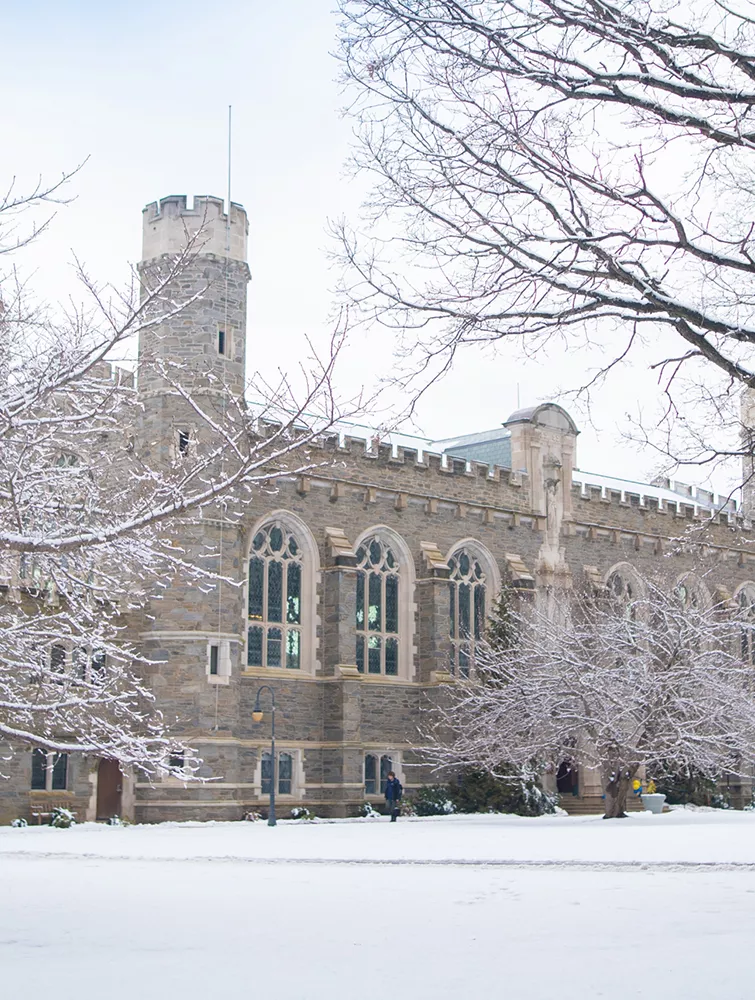
On March 1, members of the Bryn Mawr College community gathered for the first in a series of three mini Community Days of Learning. 2019 is the fifth year in which these events -- which offer opportunities for community members to engage issues of diversity, equity, and inclusion -- have been held.
Sixteen sessions were held at the event, each focused on one aspect of the theme “Engaging Bryn Mawr’s Histories.” Presenters included students, faculty, alumnae/i, and staff.
The day ended at Old Library, with members of the Telling Bryn Mawr Histories Group and President Kim Cassidy unveiling “Old Library” signs that explain the history of the building’s name and acknowledge the impact of the racist and anti-Semitic views and actions of Bryn Mawr’s founding dean and second president, M. Carey Thomas.
“We are committed to a process through which telling histories means first and foremost telling the truth,” said Professor of History Ignacio Gallup-Diaz, who chairs the Telling Histories group, at the event.
Gallup-Diaz also commented on the Group’s plans for permanent displays. “In addition to being committed to acknowledgments of past harm…the College is also committed to ‘un-hiding’ and amplifying the experiences of non-elite students and workers at the College and valorizing the contributions of people of color to the perpetuation of the institution.”
Cassidy began her remarks by thanking the members of the Telling History Group and students, faculty, staff, and alumnae/i for their advocacy and activism. She called the event an important moment in an ongoing process.
“This is a moment for the College to acknowledge the harm that was done to the students of color and to Jewish students who were excluded; the harm that continues to be inflicted on students who were and are admitted to the College; and the harm that was done to the institution, as we think about all of the knowledge, all of the people, and all of the experiences that were lost by this exclusion and erasure.”
Cassidy also spoke about the need to continue to retell, rediscover, and learn more about the College’s histories and apply that understanding today and in the future.
“If we are to achieve our goal of educational excellence, we have to look at who we are today – understanding how we are shaped in good and bad ways by our past. And we have to embrace diversity, inclusion, and equity as central to what the College seeks to be today.”
Two other Community Days of Learning are scheduled in the weeks ahead. On March 22, students, faculty, and staff will lead sessions about “A More Inclusive Bryn Mawr.” On March 29, Postdoctoral Fellow in Dance and visiting dancer Lela Aisha Jones will facilitate a performance, dialogue, and participatory journey into her artistry and research titled “The Diasporic Body.”
Learn more about Bryn Mawr College’s Community Days of Learning at https://www.brynmawr.edu/community-learning.
The Telling Histories Group is engaged in a multiyear project to develop a deeper and more inclusive institutional account of the individuals and events that have had a significant impact on Bryn Mawr. They will also recommend ways that the College can make these histories known more fully across the campus community. To contact the Group, email tellinghistories@brynmawr.edu.